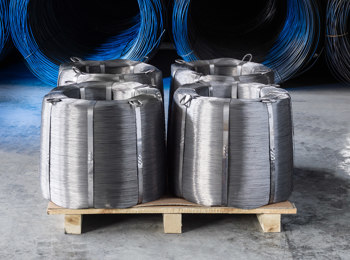Aug . 14, 2024 04:41 Back to list
Durable and Innovative Gabion Wall Solutions for Long-lasting Structural Support and Aesthetic Appeal
High-Quality Gabion Wall Systems Sustainable Engineering Solutions
Gabion wall systems have emerged as one of the most effective and sustainable solutions in civil engineering and landscape architecture. These structures, composed of wire mesh baskets filled with stones or other durable materials, offer a myriad of benefits, making them an ideal choice for various applications, from erosion control to decorative landscaping.
What are Gabion Walls?
At their core, gabion walls consist of large, cage-like structures made from a robust wire mesh, typically galvanized steel or woven wire. These cages are filled with natural stones, rocks, or recycled materials, creating a wall that is not only functional but also aesthetically pleasing. Gabions are extensively used in the construction of retaining walls, riverbank protection, and noise barriers, among other applications.
Advantages of High-Quality Gabion Wall Systems
1. Durability High-quality gabion walls are engineered to withstand harsh environmental conditions, including extreme weather, water flow, and seismic activities. The robustness of the wire mesh and the weight of the stones provide significant stability, ensuring longevity and reducing maintenance needs.
2. Sustainability Gabion walls exemplify sustainable building practices. They primarily utilize natural materials which blend seamlessly with the environment. Additionally, the use of local stones reduces transportation emissions and supports local economies. For construction projects aiming for LEED certification or similar sustainability ratings, the incorporation of gabion systems can contribute significantly.
high quality gabion wall systems

3. Erosion Control One of the primary functions of gabion walls is to combat soil erosion. Positioned along riverbanks, slopes, or any area subjected to erosion, these systems absorb and deflect water flow, minimizing soil displacement. Their porous nature allows water to percolate through, reducing hydrostatic pressure while filtering sediments, thus promoting ecological balance.
4. Aesthetics and Integration Beyond their structural benefits, gabion walls can be designed to enhance the visual appeal of a space. The variety of stones used in filling the cages can create unique textures and colors, allowing for creative and customizable designs that can fit seamlessly into natural landscapes or urban settings.
5. Versatile Applications Gabion walls are incredibly versatile. They can be employed in residential landscaping as garden borders, in parks as seating areas, or as functional art installations. Their use in infrastructure projects, such as flood control and erosion management, showcases their adaptability to different environments and requirements.
6. Cost-Effectiveness Compared to traditional wall systems, gabion walls can be a more economical choice. Their simple construction requires less skilled labor, and the materials are often readily available, contributing to cost savings. Moreover, the sustainability and durability of the materials can lead to lower lifecycle costs.
Conclusion
High-quality gabion wall systems represent a compelling option for modern engineering and landscaping projects, combining functionality with environmental stewardship. Their inherent strength, sustainability, and aesthetic flexibility make them invaluable assets in various applications. As society increasingly focuses on sustainable practices and infrastructure resilience, gabion walls are poised to play a pivotal role in shaping the landscapes of the future. Whether employed for practical erosion control, enhancing the beauty of open spaces, or serving as an innovative construction solution, gabion wall systems will continue to gain prominence as a reliable and efficient choice in the construction industry.
-
Why PVC Coated Gabion Mattress Is the Best Solution for Long-Term Erosion Control
NewsMay.23,2025
-
Gabion Wire Mesh: The Reinforced Solution for Modern Construction and Landscape Design
NewsMay.23,2025
-
Gabion Wall: The Flexible, Seismic-Resistant Solution for Modern Landscaping and Construction
NewsMay.23,2025
-
Gabion Wall Solutions: The Durable, Decorative, and Affordable Choice for Every Landscape
NewsMay.23,2025
-
Gabion Basket: The Durable and Flexible Alternative to Traditional Retaining Walls
NewsMay.23,2025
-
Gabion Basket: The Proven Solution for Slope Stability and Flood Control
NewsMay.23,2025
-
Versatility of Chain Link Fence Gabion
NewsMay.13,2025






